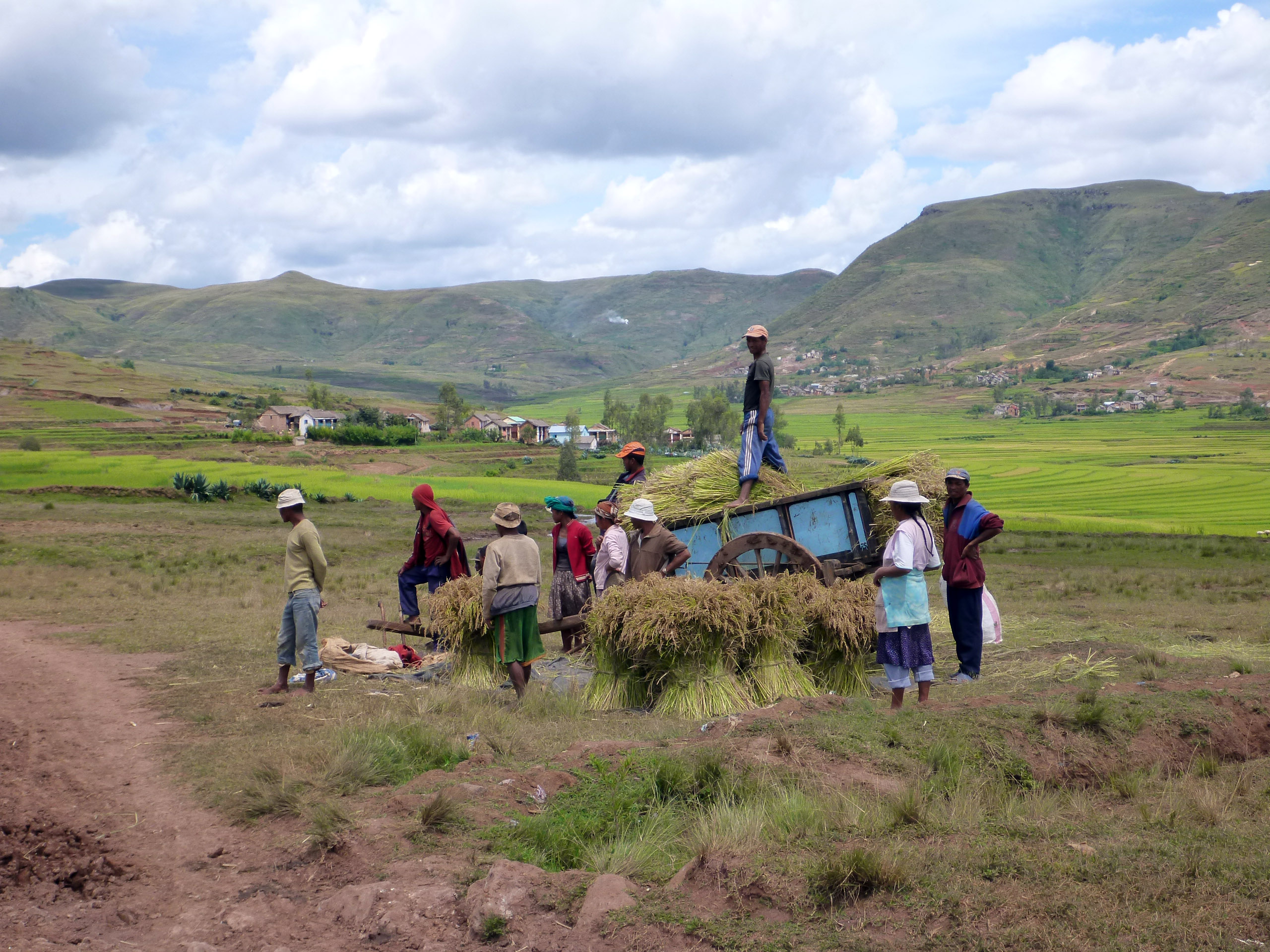Core area “Conserving nature and natural resources, protecting life on Earth” Nature conservation through sustainable use and development
Farmers harvesting rice
The island is a unique biodiversity hotspot. It is home to many animal and plant species not found anywhere else in the world. This globally unique biodiversity provides a vital basis for the country's agriculture, water supply and resilience against climate change.
However, Madagascar's natural resources are under extreme pressure. More and more areas of rainforest are chopped down or cleared by slash and burn to obtain firewood and create new farmland. There are many reasons for this: a lack of alternative sources of energy in rural areas; the deeply ingrained tradition of farming on cleared forest land; and great demand for new farmland due to the fact that the population is growing and existing farmland is increasingly threatened by erosion because of overexploitation. Forests are also being cut down so that precious woods can be exported.
Deforestation is leading to the further deterioration of soil quality and of the hydrological balance, causing agricultural productivity to decline and poverty in rural areas to increase. The impact of climate change is putting additional pressure on the country's delicate ecosystems.
German activities
Development cooperation between Germany and Madagascar therefore focuses on combining effective nature conservation with sustainable improvements to people's living conditions.
KfW Development Bank, acting on behalf of the BMZ, is making targeted investments in Madagascar's national parks. These projects foster the effective management and sustainable financing of protected areas. KfW's investments are accompanied by a GIZ project to improve environmental protection through the sustainable use of natural resources. The idea is to enable people in adjacent areas to benefit more from the national parks and to contribute to their protection. Ecotourism plays a role in these efforts, too, even if it has decreased significantly since the COVID-19 pandemic.
Germany is also supporting Madagascar's efforts for forest restoration and reforestation. In the regions of Boeny and Diana among others, efforts are under way to develop sustainable alternatives to illegal logging, so as to meet local demand for firewood and construction timber. Training is provided to farmers on how to improve farming techniques through the agroforestry approach with a view to increasing their incomes. This approach combines crop and livestock farming with the planting and use of trees and shrubs.
In order to put these efforts on a lasting basis, GIZ is engaged in a related project that works closely with the government, administrative bodies, and local communities. One important part of this work is the protection and reforestation of mangrove forests. Mangroves store large amounts of carbon and are important for coastal protection and fishing.
As at: 12/01/2024
